|
Books Should Be Free Loyal Books Free Public Domain Audiobooks & eBook Downloads |
|
|
Books Should Be Free Loyal Books Free Public Domain Audiobooks & eBook Downloads |
|
Fiction |
|---|
|
Book type:
Sort by:
View by:
|
By: Earle Ashley Walcott (1859-1931) | |
|---|---|
 Blindfolded
Blindfolded
Giles Dudley is called upon by his cousin Henry Wilton to assist him in San Francisco, but the reason for the summons is not at all clear. Dudley answers the summons, only to find himself immediately wrapped in the middle of mystery and intrigue, the roots and ends of which he is utterly unaware. He has been given to care for a mysterious young boy whom he hasn't even seen. His cousin has mysteriously disappeared. Dudley's role in the mystery has him convinced that as he goes about trying to assist his cousin with whatever it was he wanted to accomplish, he does so completely blindfolded. | |
By: Thornton W. Burgess (1874-1965) | |
|---|---|
 The Adventures of Jerry Muskrat
The Adventures of Jerry Muskrat
Join us as we follow Jerry Muskrat and his friends on an adventure to discover what is threatening their homeland; The Laughing Brook and The Smiling Pool. | |
 Mrs. Peter Rabbit
Mrs. Peter Rabbit
A wonderful book in which we meet the lucky little bunny who becomes Mrs. Peter Rabbit! This is one of many delightful animal books written by Thornton W. Burgess. I grew up reading and enjoying these tales of talking animals with fun and varied personalities. Peter Rabbit is a character loved by all, and this charming tale recounts the adventures of meeting, wooing, and marrying Mrs. Peter Rabbit. (Introduction by CLW Rollins) | |
 Adventures of Danny Meadow Mouse (dramatic reading)
Adventures of Danny Meadow Mouse (dramatic reading)
Danny begins his tale regretting the length of his tail until he is corrected by Mr. Toad. Then he has a series of stalkings by Reddy and Granny Fox. He is captured by Hooty the Owl and escapes mid-flight to Peter Rabbit's briar patch. Peter goes to Farmer Brown's peach orchard and gets caught in a snare and barely escapes himself. Finally Danny gets trapped in a tin can and must use his wits to escape Reddy Fox again. | |
 Adventures of Lightfoot the Deer
Adventures of Lightfoot the Deer
The Adventures of Lightfoot the Deer is another set of children’s stories by the conservationist, Thornton W. Burgess. More serious than some of Burgess' other children's books, much of this book chronicles the tense predator-prey relationship of a human hunter and Lightfoot the Deer during the autumn hunting season. Later, Lightfoot discovers a hunt of a different kind. | |
 Mother West Wind "How" Stories
Mother West Wind "How" Stories
Peter Rabbit has many questions. How did Howler the Wolf get his name? How did Lightfoot the Deer learn to jump? How did Drummer the Woodpecker come by his red cap? When Peter asks Grandfather Frog, Grandfather Frog tells him a story of long ago. This book is a collection of those stories told by Grandfather Frog and many others. | |
 Old Granny Fox
Old Granny Fox
Old Granny Fox and grandson Reddy Fox must use all their cunning to hunt up enough food to survive the long winter. Food in the Green Meadow is scarce but Farmer Brown's hens are locked up tight and protected by Bowser the Hound, so Granny takes a conceited Reddy hunting and teaches him some surprising new tricks to lure in their dinner. Old Granny and Reddy Fox encounter danger and adventure in their quests to keep their bellies full, including a close encounter with Farmer Brown's boy, a clever plot to steal Bowser's food, and an unforeseen thief who might outsmart this sneaky pair. | |
 Blacky the Crow
Blacky the Crow
Blacky the Crow is a clever rascal who lives in the Green Forest and Meadow. He loves to play tricks on the other little people who are his neighbours, and is curious about Farmer Brown’s Boy. Blacky is always thinking about what is right and what is wrong, but he still gets into all kinds of mischief. | |
By: Mrs Charles Bryce (1839-1920) | |
|---|---|
 The Ashiel Mystery - A Detective Story
The Ashiel Mystery - A Detective Story
Just as the adopted Juliet Byrne finds out the truth about her family, her father is murdered. Luckily the brilliant chocolate-munching Detective Gimblet takes up the case to solve the 'Ashiel Mystery' | |
By: Robert Gordon Anderson | |
|---|---|
 Seven O'Clock Stories
Seven O'Clock Stories
“Not once upon a time but just now, in a white house by the side of a road, live three happy children.Their mother and father gave them very odd names, for two old uncles and one aunt, which pleased the old people very much. Their names are all written in the big family Bible,–Jehosophat Green, Marmaduke Green, and Hepzebiah Green.” So begins this collection of bedtime stories for children, one each night for twenty days, involving these three happy children and their playmates. | |
By: Joseph Sheridan LeFanu | |
|---|---|
 Uncle Silas
Uncle Silas
Uncle Silas is a Victorian Gothic mystery/thriller novel by the Anglo-Irish writer J. Sheridan Le Fanu. It is notable as one of the earliest examples of the locked room mystery subgenre. It is not a novel of the supernatural (despite a few creepily ambiguous touches), but does show a strong interest in the occult and in the ideas of Swedenborg. | |
By: Pansy aka Isabella Alden (1841-1930) | |
|---|---|
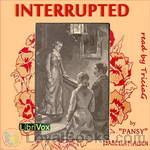 Interrupted
Interrupted
Alternately titled Out in the World. Claire Benedict is a capable, responsible, solid young Christian woman. Everyone leans on her for support and depends on her to do much that needs to be done in her church and social circle. But then her businessman father dies unexpectedly and leaves the family almost penniless, interrupting her tranquil, fulfilling life. Written by Isabella Alden under the pen name Pansy. | |
 Workers Together, or, An Endless Chain
Workers Together, or, An Endless Chain
Sixth in the Chautauqua Girls series. It picks up the characters of Dr. Stuart Everett and Joy Saunders introduced in "Ester Ried Yet Speaking" and follows them and other Christians in their work for the Master. Half-hearted and fully committed workers: all have an impact on those around them, for good or for ill. | |
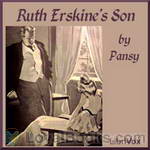 Ruth Erskine's Son
Ruth Erskine's Son
Seventh book in the Chautauqua Girls series. Written by Isabella Alden under the pseudonym “Pansy.”Erskine, Ruth's son (a 5-year-old at the end of Judge Burnham’s Daughters) is now a grown man, and Ruth is 50-something. He brings home an American wife from Paris, a woman who seems to want to tear apart mother and son. But Irene has some big secrets to hide. | |
By: William J. Burns (1861-1932) | |
|---|---|
 The Crevice
The Crevice
The sudden death of wealthy and prominent financier, Pennington Lawton from an apparent heart attack, followed by the shocking revelation of his impending bankruptcy, leaves his sole heir and only daughter, Anita, distraught and nearly penniless. Nonetheless, she is determined to unravel the mystery surrounding her father’s death and the loss of his great fortune. To this end she engages the famous detective, Henry Blaine who is determined to unravel the tangled web of deception and restore both her father’s reputation and Anita’s inheritance... | |
By: May Agnes Fleming (1840-1880) | |
|---|---|
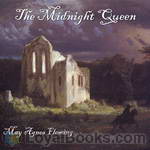 The Midnight Queen
The Midnight Queen
May Agnes Fleming is renowned as Canada's first best-selling novelist. She wrote 42 novels, many of which have only been published posthumely.The Midnight Queen is set in London, in the year of the plague 1665. Sir Norman Kingsley visits the soothsayer "La Masque" who shows him the vision of a beautiful young lady. Falling madly in love with her, he is astonished to find her only a short time later and saves her from being buried alive. He takes her home to care for her, but while he fetches a doctor, she disappears. Sir Kingsley and his friend Ormistan embark on an adventure to solve the mystery of the young lady - will they ever find her again? | |
By: F. Anstey (1856-1934) | |
|---|---|
 The Brass Bottle
The Brass Bottle
What happens when a not-so-lucky man happens upon a brass bottle and releases the djinni caught within? Misunderstanding, culture shock, hilarity, among other things. Will the well-intentioned djinni help his new master? Or will he make things even worse? | |
 Vice Versa
Vice Versa
Set in Victorian times, the novel concerns business man Paul Bultitude and his son Dick. Dick is about to leave home for a boarding school which is ruled by the cane wielding headmaster Dr. Grimstone. Bultitude, seeing his son's fear of going to the school, foolishly says that schooldays are the best years of a boy's life, and how he wished that he was the one so doing. At this point, thanks to a handy magic stone brought by an uncle from India which grants the possessor one wish, they are now on even terms... | |
By: Anstey, F. (1856-1934) | |
|---|---|
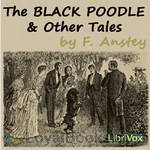 The Black Poodle and Other Tales
The Black Poodle and Other Tales
This is a collection of ten humorous short stories | |
By: F. Anstey (1856-1934) | |
|---|---|
 Baboo Jabberjee, B.A.
Baboo Jabberjee, B.A.
Another delightful example of an English writer poking fun at his countrymen, or maybe all races' reactions to someone from a diferent background. A series of adventures of a well educated foreigner in London which originally appeared weekly in Punch, sometimes with illustrations, dealing with the difficulties of fully understanding a different culture. The hero's perfect English reminds one of a quote from "My Fair Lady" ..."His English is too good, he said, "that clearly indicates that he is Foreign. Whereas other people are instructed in their native language English people aren't." | |
By: Frank Norris (1870-1902) | |
|---|---|
 McTeague
McTeague
McTeague is a simple dentist who becomes infatuated with Trina, the cousin of his friend Marcus. Trina then buys a winning lottery ticket worth $5,000, and McTeague announces his plans to marry her. But their marriage quickly falls apart as greed consumes them both, and Marcus' jealousy toward McTeague boils over. | |
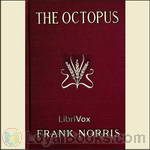 The Octopus
The Octopus
Frank Norris based his 1901 novel The Octopus (A Story of California) on the Mussel Slough Tragedy of 1880, a bloody conflict between ranchers and agents of the Southern Pacific Railroad. The central issue was over the ownership of the ranches, which the farmers had leased from the railroad nearly ten years earlier with intentions of eventually purchasing the land. Although originally priced at $2.50 to $5 per acre, the railroad eventually opened the land for sale at prices adjusted for land improvements; the railroad’s attempts to take possession of the land led the ranchers to defend themselves as depicted in the book. | |
By: William John Locke (1863-1930) | |
|---|---|
 The Red Planet
The Red Planet
Set during WWI in England, The Red Planet is a rich tale about the life in a little English town from the point of view of Major Duncan Meredyth, a disabled veteran of the Boer Wars. As he struggles to keep his life and the lives of those he cares for in harmony, he must also shelter a dark secret regarding one of the village's favorite sons.The Red Planet was the third bestselling novel in the United States for 1917. | |
By: Francis Lovell Coombs | |
|---|---|
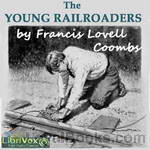 The Young Railroaders
The Young Railroaders
While aimed at youths, this series of tales of the just-opening West makes a rollicking good story for adults, too. Three teen-age boys, trained as telegraphers, manage to get themselves in and out of a wide variety of harrowing circumstances. Using their knowledge of Morse code, the science of telegraphs, and the operation of railroads, the boys stir in native resourcefulness, quick-thinking, and when the occasion demands it, raw courage – to effect rescues, thwart thieves, and solve mysteries. If Tom Swift had lived in the nineteenth century, he could not have had more exciting escapades! | |
By: Michael Shaara (1928-1988) | |
|---|---|
 Conquest Over Time
Conquest Over Time
Pat Travis, a spacer renowned for his luck, is suddenly quite out of it. His job is to beat his competitors to sign newly-Contacted human races to commercial contracts...But what can he do when he finds he's on a planet that consults astrology for literally every major decision - and he has arrived on one of the worst-aspected days in history?Michael Shaara, later to write the Pulitzer-winning novel "The Killer Angels", wrote this story for Fantastic Universe in 1956. | |
By: George Gissing | |
|---|---|
 New Grub Street
New Grub Street
The story deals with the literary world that Gissing himself had experienced. Its title refers to the London street, Grub Street, which in the 18th century became synomynous with hack literature; as an institution, Grub Street itself no longer existed in Gissing’s time. Its two central characters are a sharply contrasted pair of writers:Edwin Reardon, a novelist of some talent but limited commercial prospects, and a shy, cerebral man; and Jasper Milvain, a young journalist, hard-working and capable of generosity, but cynical and unscrupulous about writing and its purpose in the modern (i.e. late Victorian) world. | |
 In the Year of Jubilee
In the Year of Jubilee
The Jubilee marks the fiftieth year of the reign of Queen Victoria. Dickensian in its sweeping scope of London life, Jubilee depicts the harsh and disreputable conditions of lower-middle class life at the end of the 19th century. (Introduction by S. Kovalchik) | |
 The Odd Women
The Odd Women
George Gissing's 1893 novel takes on the 19th century "Woman Question" by looking at themes of feminism, marriage, and love. The novel raises these issues through the lives of several contrasting women: Mary Barfoot, a feminist philanthropist who helps train women for careers; her close friend Rhoda Nunn, who believes marriage is a disastrous choice for women; and Monica Madden, who starts out as one of their protegees but chooses to marry a seemingly kind older man. As Monica experiences the challenges of married life, Rhoda finds herself drawn to Mary's cousin, the charming but apparently profligate Everard. | |
 Nether World
Nether World
This sad social novel revolves around the problematic issue of money. Michael returns from Australia to London a rich man. However, he hides this fact from everybody and spends money only on the things he really needs. He contemplates leaving his money to his granddaughter Jane, under the condition that she donate at least most of it to charity. However, Jane is not sure she can do it. This novel tells much about working class life in 19th century London. | |
 Unclassed
Unclassed
The Unclassed tells the story of two friends who are aspiring authors living in London in the late 19th century. Both of them fall in love. Both believe in social change but do not know how to bring it about. Both are sceptical about the values of their times. Both want respectability more then they would admit. This book, unlike many others of it's time, tells about working women, and includes honest descriptions of the slums of London. | |
 Demos: A Story of English Socialism
Demos: A Story of English Socialism
"Richard Mutimer is delighted to inherit a large fortune. As a socialist, he means to use it well: he will open a factory in which workers would be treated well, he will advance his party's causes through his own wealth... At least, so he thinks. But reality may be far different. This novel raises more questions than answers. How much should money play in the marriage market, or can love have a prominent place? Can a man who gained power remain a socialist? This book is not only about political unrest... | |
 Life's Morning
Life's Morning
This is the story of a poor young lady Emily Hood who while working as a governess falls in love with Wilfrid Athel the son of her employer. They become engaged, however things do not run smoothly after a visit home to her parents and Emily has to make a heartbreaking choice. | |